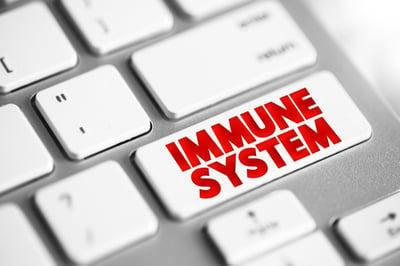Detrás de los titulares sobre el cáncer
Obtener más información sobre el programa de XRAY



Relevancia: Media-alta
Este artículo es de mayor interés para: Personas transgénero
Artículo: La perspectiva de las personas transgénero tras ser diagnosticadas con cáncer relacionado con el género
Un artículo de ABC News que ofrece puntos de vista y datos que transmiten el estrés adicional que sufren las personas transgénero e inconformes con su género cuando se les diagnostica cáncer relacionado con el género (p. ej., cáncer de ovario o de próstata) que no coincide con su identidad de género. (publicado el 13/09/21)
Leer más ›


Relevancia: Alta
Este artículo es de mayor interés para: Mujeres blancas y negras no hispanas con cáncer de mama
Estudio: La frecuencia de las mutaciones hereditarias relacionadas con el cáncer de mama es similar en mujeres blancas y negras
El estudio CARRIERS analizó la tasa de mutaciones hereditarias en mujeres con y sin cáncer de mama. En una ampliación del estudio CARRIERS, los investigadores no hallaron diferencias en la frecuencia de mutaciones hereditarias en los genes del cáncer de mama entre las mujeres blancas y negras con cáncer de mama. Unos pocos genes individuales diferían en frecuencia: Las mutaciones BRCA2 y PALB2 se observaron con más frecuencia en las mujeres negras, mientras que las mutaciones CHEK2 se observaron con menos frecuencia. Los investigadores concluyeron que la raza no debe utilizarse para determinar a quién se deriva a las pruebas genéticas. (Publicado el 13/8/21)
Leer más ›


Relevancia: Alta
Este artículo es de mayor interés para: Personas con mutaciones hereditarias en el PALB2
Estudio: Riesgos de padecer cáncer en personas con mutaciones hereditarias en el gen PALB2
En el estudio de mayor tamaño realizado hasta la fecha en personas con mutaciones hereditarias en el PALB2, este gen se relacionó con un mayor riesgo de por vida de padecer cáncer de mama (hombres y mujeres), cáncer de ovario y de páncreas, pero no se relacionó con el cáncer de próstata o colorrectal. (publicado 1/7/21)
Leer más ›


Relevancia: Alta
Este artículo es de mayor interés para: Personas interesadas que tienen riesgo de padecer cáncer de endometrio, ovario o mama.
Estudio: Las pastillas anticonceptivas pueden ofrecer protección a largo plazo contra el cáncer de endometrio y ovario
Un extenso estudio mostró que las pastillas anticonceptivas pueden proteger contra el cáncer de endometrio y ovario, aún cuando las pastillas se hayan dejado de tomar hace varios años. (publicado el 1/6/21)
Leer más ›


Relevancia: Media
Este artículo es de mayor interés para: Personas con cáncer de mama triple negativo no metastásico con alto riesgo de recurrencia.
Actualización: La FDA autoriza las pruebas de una vacuna diseñada para prevenir el cáncer de mama
Durante años los científicos han trabajado para desarrollar una vacuna para prevenir el cáncer de mama. Recientemente, la Administración de Alimentos y Medicamentos (FDA, por sus siglas en inglés) anunció que se puede dar inicio al primer estudio clínico para probar la vacuna para prevenir este tipo de cáncer. Esta vacuna es el resultado de investigaciones que se han realizado durante más de una década en células de animales y personas. Los investigadores realizarán las primeras pruebas de la vacuna en mujeres que ya padecen cáncer de mama, pero esperan poder usarla en el futuro para prevenir esta enfermedad. (publicado el 25/5/21)
ESTA INFORMACIÓN SW ACTUALIZÓ el 12/10/2021: El ensayo clínico mencionado en esta publicación de XRAY ha comenzado a registrar participantes. Los investigadores esperan reclutar a 24 pacientes con cáncer de mama triple negativo no metastásico. Este ensayo clínico se está llevando a cabo en la Clínica Cleveland en Cleveland, Ohio. Para obtener más información sobre este ensayo, haga clic aquí.
Leer más ›


Relevancia: Alta
Este artículo es de mayor interés para: Personas con síndrome de Lynch
Estudio: El consumo diario de una alta dosis de aspirina durante al menos dos años disminuye el riesgo de padecer cáncer colorrectal pero no otros tipos de cáncer en personas con síndrome de Lynch
La investigación ha demostrado que el consumo diario de aspirina puede disminuir el riesgo de padecer cáncer de colon y otros tipos de cáncer. El Programa de Prevención del Cáncer 2 (CaPP2) analizó el efecto del consumo diario de aspirina en pacientes con síndrome de Lynch. Después de 10 años de seguimiento, los resultados demostraron que el consumo diario de aspirina durante dos años disminuyó la frecuencia de padecer cáncer de colon en pacientes con síndrome de Lynch. No se observaron efectos favorables para otros tipos de cáncer relacionados con el síndrome de Lynch, como el cáncer de endometrio. (Publicado 17/5/21)
Leer más ›


Relevancia: Media-alta
Este artículo es de mayor interés para: Mujeres que están considerando una mastectomía sin reconstrucción del seno.
Estudio: Respuestas de pacientes y sus experiencias de “quedarse planas”
Algunas pacientes con cáncer de mama en fase inicial, o aquellas que están considerando una cirugía para reducir el riesgo pueden preferir una mastectomía sin reconstrucción, a lo cual suelen referirse como “quedar planas”. Los resultados de este estudio indican que los cirujanos desempeñan un papel central en esta decisión (publicado el 23/3/21).
Leer más ›


Relevancia: Media-alta
Este artículo es de mayor interés para: Personas con riesgo de padecer cáncer colorrectal o de ovario
Estudio: Forma en la que el índice de masa corporal (IMC) puede afectar el efecto favorable del consumo de aspirina en la protección contra el cáncer colorrectal y de ovario
En este estudio se analizó el efecto del consumo diario de aspirina en la disminución del riesgo de padecer distintos tipos de cáncer y si la disminución del riesgo depende de los factores de riesgo de padecer cáncer tales como obesidad, consumo de tabaco, inactividad física o los antecedentes familiares de cáncer. (publicado en el 19/2021)
Leer más ›


Relevancia: Media-alta
Este artículo es de mayor interés para: Mujeres con mutaciones hereditarias en el BRCA1 o en el BRCA2
Estudio: La lactancia materna como factor para disminuir el riesgo de cáncer de ovario en mujeres con mutaciones en el BRCA
La información obtenida de un estudio a gran escala señala que la lactancia materna puede ser un factor de protección contra el cáncer de ovario en mujeres con mutaciones hereditarias en el BRCA1 o en el BRCA2. (publicado el 28/01/21)
Leer más ›


Relevancia: Alta
Este artículo es de mayor interés para: Mujeres jóvenes con alto riesgo
Estudio: Las mujeres que hacen ejercicio tienen menos riesgo de padecer cáncer de mama sin importar si tienen antecedentes familiares de la enfermedad
Este estudio de más de 15,000 mujeres analiza el efecto que tiene la actividad física en el riesgo de padecer cáncer de mama. Los resultados indican que el ejercicio disminuye el riesgo de cáncer de mama sin importar si hay antecedentes familiares o si las mujeres están en la menopausia. (Publicado 12/6/19)
Leer más ›